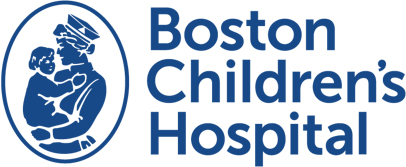January 15, 2026 at 12:00PM - 1:00PM
Talk Title: The AI Revolution in Medicine, Revisited
December 3, 2025 at 1:00PM - 2:00PM
Talk Title: Transforming the FDA into a Real Time Regulatory Environment
March 29, 2024 at 9:00am - 10:00am
The Computational Health Informatics Program (CHIP) first session of this new interactive monthly meeting series. Speaker: Timothy Miller PhD “Models and Technologies for Applying LLMS to Electronic Health Record Data” Email us for Zoom detail to join: contact[dot]chip@childrens[dot]harvard[dot]edu
March 12, 2024 at 2:15pm - 3:00pm
CHIP Monthly AI Journal Club Dr. Nori will discuss his work at Microsoft and two journal articles: Capabilities of GPT-4 on Medical Challenge Problems (arxiv.org) [2303.13375] Can Generalist Foundation Models Outcompete Special-Purpose Tuning? Case Study in Medicine (arxiv.org) [2311.16452]
March 7, 2024 at 4:00PM - 5:00PM
Join Dr. Ken Mandl and Ms. Christina Farr for a fireside chat, exploring her transition from reporting to venture capital and discussing her strategic approach and philosophy in investing in digital health, highlighting the power of storytelling and attention to detail.
February 5, 2024 at 4:00PM - 5:30PM
In the era of AI and digital transformation, every challenge becomes an opportunity to rethink, reinvent, and reinvigorate our approach to patient care. Join Dr. Mandl and Dr. Cosgrove for a fireside chat, followed by an engaging participant discussion.
January 29, 2024 at 4:00PM - 5:30PM
Talk Title: The Value of “Small” Data in a “Big” Data World: Why Representative Public Opinion Polls and Surveys are Still an Important Tool For Our Understanding
December 7, 2023 at 4:00PM - 5:30PM
Talk Title: Beyond Touchdowns: How the NFLPA's Drive to Player Safety and Improved Outcomes Offers a Blueprint for Health System Scale Progress
November 16, 2023 at 4:00PM - 5:30PM
Talk Title: An inside look at how STAT has emerged as the leading journalistic authority on health and medicine
October 5, 2023 at 4:00PM - 5:30PM
Talk Title: Small Game Hunting
September 7, 2023 at 4:00PM - 5:00PM
Talk Title: From nanotechnology to mRNA vaccines: How overcoming skepticism and barriers led to new cancer treatments and ways to tackle a global health challenge
June 27, 2023 at 4:00PM - 5:00PM
Talk Title: Advancing Health at the Speed of Al We are excited to introduce this series in a hybrid format at our location, Landmark (401 Park Drive). For those that cannot attend, a link will be provided to participate virtually. Dr. Poon is an expert in natural language processing working on the health team at Microsoft on large language models including the use of ChatGPT in healthcare.
June 15, 2023 at 4:00PM - 5:30PM
Talk Title: The Cognitive Revolution: Entering an Era of Automating Both Muscles and Minds.
May 1, 2023 at 4:00PM - 5:30PM
Using Licensing to Maximize Innovation in The Open Source Software Ecosystem.
April 3, 2023 at 4:00PM - 5:30PM
Talk Title: Building Pandemic Resilience through Disruptive Public Health Innovation.
March 9, 2023 at 4:00PM - 5:30PM
Talk Title: AI in healthcare: Dreams, hallucinations, and useful practices.
February 9, 2023 at 4:00PM - 5:30PM
Talk Title: Enduring Stigma: Historical Perspectives on Disease Meanings and Their Impacts.
January 12, 2023 at 4:00PM - 5:30PM
Dr. Mandl and Dr. Miner had a fireside chat.
December 5, 2022 at 4:00PM - 5:30PM
Talk Topic: Rewriting Biology with Artificial Intelligence.
November 21, 2022 at 4:00PM - 5:00PM
Talk Title: Real-world evidence for a learning healthcare system: moving from claims data to claims with linked EHR data.
November 10, 2022 at 4:00PM - 5:00PM
Talk Title: Maternal and Infant Health Data Equity and Modernization: Are We There Yet?
October 20, 2022 at 4:00PM - 5:00PM
Talk Topic: How a large a collaborative research network reshapes evidence generation for pediatric care.
October 3, 2022 at 4:00PM - 5:30PM
Talk Topic: Machine Learning and Revolutionizing Healthcare.
September 19, 2022 at 4:00PM - 5:30PM
Talk Title: Stem Cell Science and the Genesis of New Therapeutic Strategies for Patients.
September 12, 2022 at 4:00PM - 5:00PM
The Tale of Two AI's - From Vision to Market.
May 5, 2022 at 4:00PM - 5:30PM
Medical Reversal: Why 46% of What Doctors Think Is Wrong In this lecture we will talk about the rate with which medical practices are widely adopted and later found to be lacking. We will explore some of the causes and solutions.
April 4, 2022 at 4:00PM - 5:00PM
Talk Topic: Interoperable Pandemic IT Innovations in California at Population Scale.
March 17, 2022 at 4:00PM - 5:30PM
Talk Topic: Linking Human and Environmental Microbiomes for Health.
February 17, 2022 at 4:00PM - 5:30PM
Genomic Approaches to Cancer Precision Medicine Dr. Golub presented findings from his laboratory and the Broad Institute Cancer Program utilizing large-scale pre-clinical models for therapeutic target discovery and approaches to cancer precision medicine.

February 11, 2022 at 09:30AM - 10:30AM
Fetal magnetic resonance imaging is challenging to perform as the fetus continually moves during image acquisition. As a result, the technologist must know how to "chase the fetus" to get images orthogonal to the fetal brain and repeat these acquisitions until images without motion are obtained. In this talk we will discuss how ML approaches are being used to accelerate and automate fetal imaging acquisition. Fetal imaging can be a challenge, but fetal motion also provides insight into the neurological and musculoskeletal development of the fetus. We will also describe how we have used ML approaches to track and quantify fetal motion and the potential neuroscientific and clinical applications.

February 1, 2022 at 2:00PM - 3:00PM
Dr. Ben Reis and Ilkin Bayramli will present their paper in Journal of the American Medical Informatics Association (JAMIA) entitled "Temporally informed random forests for suicide risk prediction": -https://pubmed.ncbi.nlm.nih.gov/34725687/

January 21, 2022 at 09:30AM - 10:30AM
A discussion among Drs. Arjun Manrai, Amy Starmer, and Robert Rosen, moderated by Dr. Ken Mandl.
January 20, 2022 at 4:00PM - 5:30PM
Clinical research is undergoing a major shift, as regulators and sponsors move towards continuous evidence generation to study how interventions perform over time. In this talk, we’ll explore what’s accelerating this trend, how new tools and technologies are advancing the space, and how it can ultimately enable more personalized care.
December 14, 2021 at 2:00PM - 3:00PM
Dr. Wallace will talk about their work in text summarization and simplification, and issues related to factual accuracy of generated texts: - https://arxiv.org/abs/2104.05767 - https://arxiv.org/abs/2008.11293
November 30, 2021 at 2:00PM - 3:00PM
Dr. Eran presented her paper in Nature Medicine entitled "A multidimensional precision medicine approach identifies an autism subtype characterized by dyslipidemia": https://www.nature.com/articles/s41591-020-1007-0.
November 15, 2021 at 4:00PM - 5:30PM
In May 2020, I co-authored a preprint that asked whether SARS-CoV-2 might have emerged naturally or from a lab. The preprint propelled me into an unpredictable year-and-a-half journey of searching for the origin of Covid-19. In May 2021, I agreed to write down what I had learnt in a book that will be released on November 16, VIRAL: The Search for the Origin of Covid-19. In this Landmark talk, I will discuss the role of scientists in the investigation of how SARS-CoV-2 emerged in Wuhan in late 2019. I will also describe the available data relevant to the origin of Covid-19, and how scientists can and must play an important role in what is possibly the most important mystery of our generation. This virus will be with us forever. We need to know where it came from.
October 7, 2021 at 4:00PM - 5:30PM
Dr. Stephen Wolfram – creator of Mathematica, Wolfram|Alpha and the Wolfram Language; the author of A New Kind of Science; the originator of the Wolfram Physics Project; and the founder and CEO of Wolfram Research – will speak about the computational future and biomedicine. Dr. Wolfram will share a roadmap for recentering biomedicine around computation and give insights into harnessing data driven science to transform the biomedical landscape. This should be a relevant and an illuminating talk from one of the foremost leaders in computational health.
September 23, 2021 at 4:00PM - 5:30PM
Dr. Aaron Kesselheim, former member of the FDA’s Peripheral and Central Nervous System Drugs Advisory Committee who resigned over the agency’s approval of Aducanumab, will speak about the FDA’s accelerated approval pathway, how it is implemented, and how it was applied in the controversial Aducanumab case – which he dubbed the “worst drug approval decision in recent U.S. history.” Dr. Kesselheim will also give suggestions for the future. This should be a fascinating talk with wide implications for all future accelerated drug approval pathways.
September 17, 2021 at 09:30AM - 10:30AM
Most interpretable machine learning research focuses on explaining the outputs of black-box models. A different, and promising, approach is to use machine learning to find the simplest possible model that meets certain performance criteria; this is the pursuit of symbolic regression. In this talk I will discuss the concepts of interpretability and explainability, and how they are used in the machine learning world. I will then discuss a pre-print that will be published in the Neurips Datasets and Benchmarks track later this year. In it, we attempt to benchmark many different approaches to symbolic regression on hundreds of problems in order to determine the strengths and weaknesses of current methods. I will discuss what lies ahead and implications for how clinicians and patients receive and process models that increasingly appear in the health system. This event is only open to Boston Children's staff. If you would like to attend the Zoom details, please email CHIP@childrens.harvard.edu.
July 22, 2021 at 3:00PM - 4:00PM
The Delta (B.1.617.2) variant of the SARS-CoV-2 virus has rapidly emerged as the dominant strain spreading in many countries worldwide. Dr. Ben Reis led a discussion reviewing the latest findings on the Delta variant, with a focus on the effectiveness of approved COVID-19 vaccines against this emerging viral strain. Dr. Reis reviewed the evidence available from scientific publications, preliminary studies and public health reports, in the context of the inherent challenges involved in real-world vaccination effectiveness studies. He discussed the lessons learned from the nation-wide mass-vaccination experience in Israel and other highly vaccinated countries such as the UK, and provided an update on how these countries are responding dynamically to the threats posed by this emerging variant.
May 11, 2021 at 2:00PM - 3:00PM
Dr. Gao will discuss the following article: Gao, Bien, and Witten (2020). Selective inference for hierarchical clustering. arXic:2012.02936. This journal club is only available to the BCH community. If you would like to be sent a calendar invite please email chip@childrens.harvard.edu.
April 29, 2021 at 5:00PM - 6:30PM
In an age where technology appears to rule supreme, it is easy to forget that our relationship with technology is complicated. Just as humans shape technology, it shapes us in return. It is also easy to only see things through the lens of the technologies we have to hand, and build solutions that ill fit reality. Electronic health records for example demand that clinical work bends to the needs of documentation, with the end result being burnt out clinicians who do anything but what they were taught at medical school. Algorithms built with our cleverest machine learning methods just end up making concrete the biases implicit in their data sets. Seeing human systems like healthcare as sociotechnical systems helps us understand these unintended consequences, and gives us a different lens to understand technology design and use.
April 13, 2021 at 2:00PM - 3:00PM
Dr. Beam led a discussion on the following article: Tom B Brown, Benjamin Mann, Nick Ryder, et al. Language models are few-shot learners. arXiv preprint arXiv:2005.14165 [cs], 2020. Dr. Beam also discussed results from his group that evaluates this model on medical applications.
March 16, 2021 at 2:00PM - 3:00PM
Dr. Ben Reis will lead a discussion on the recent New England Journal of Medicine paper he co-authored, providing the first real-world study of effectiveness of the Pfizer-BioNTech COVID-19 vaccine. It was the largest study yet to quantify the impact of the vaccine outside the confines of a clinical trial. The study used innovative epidemiological methods to analyze vaccine effectiveness for preventing symptomatic diseases, severe illness and death. Dr. Reis will discuss his study and the lessons learned from the nation-wide mass vaccination experience in Israel. The study has been featured in The New York Times, Bloomberg, and Fortune.
March 1, 2021 at 4:00PM - 5:30PM
Privacy has become a central focus of policy debates in every context. In this talk, Lessig argues that we’re conceiving of the problem in a fundamentally flawed way. Offered is a different framework, radically different but critically better. Or so it is hoped.
February 23, 2021 at 2:00PM - 3:00PM
James will lead a discussion on approaches to addressing racial equity concerns with clinical algorithms, including for arthritis severity (Pierson et al. 2021) and kidney function estimates (Diao et al. 2021):
February 22, 2021 at 4:00PM - 5:30PM
There is an urgent need to take what we have learned in our new data-driven era of medicine, and use it to create a new system of precision medicine, delivering the best, safest, cost-effective preventative or therapeutic intervention at the right time, for the right patients. Dr. Butte's lab at the University of California, San Francisco builds and applies tools that convert trillions of points of molecular, clinical, and epidemiological data -- measured by researchers and clinicians over the past decade and now commonly termed “big data” -- into diagnostics, therapeutics, and new insights into disease. Dr. Butte, a computer scientist and pediatrician, will highlight his center’s recent work on integrating electronic health records data across the entire University of California, and how analytics on this “real world data” can lead to new evidence for drug efficacy, new savings from better medication choices, and new methods to teach intelligence – real and artificial – to more precisely practice medicine.
January 29, 2021 at 09:30AM - 10:30AM
We are often wowed by the *potential* of AI (and frankly other sophisticated computational approaches) to transform research and clinical workflows. New approaches seem to magically hold unbounded promise. Yet, there is often a large gulf between theory and practice, between a shiny new technique and having anyone just use it. The questions of "How do I get this ? How do I get my data from PACS to connect to this? How do I go from DICOM to something that the neural network wants? How do I get results that are useful?" In this talk I will provide some insights into practically developing, using, and disseminating "AI" (and other) workflows in the BCH clinical and research environment.
January 11, 2021 at 4:00PM - 5:30PM
Genome sequencing is revolutionizing the diagnosis of rare diseases, but 95% of these conditions still lack effective therapy. With up to 7,000 distinct genetic diseases to tackle, new and creative frameworks will be necessary to meet this need. Recent advances offer the prospect of platform-based therapeutic approaches to certain genetically targetable disorders — in the right circumstances, facilitating the design and deployment of hyper-personalized drugs for conditions affecting as few as even a single patient. The scientific, clinical, ethical, and regulatory implications of these capabilities will be discussed.
December 8, 2020 at 4:45PM - 5:30PM
Dr. Savova led a discussion of tasks and applications of clinical Natural Language Processing (NLP) in medicine, such as: The landscape of neural approaches and clinical NLP (Wu et al, 2019; https://pubmed.ncbi.nlm.nih.gov/31794016/) Data challenges in clinical NLP (de-identified data, usability and challenges) Some tasks and applications Information extraction for cancer surveillance (DeepPhe-CR) (Savova et al, 2017; https://pubmed.ncbi.nlm.nih.gov/29092954/) Treatment information extraction (Bitterman et al, 2020 https://www.aclweb.org/anthology/2020.clinicalnlp-1.21.pdf; Lin et al, 2020 https://www.aclweb.org/anthology/2020.louhi-1.12.pdf) What is trending.
November 10, 2020 at 4:45PM - 5:30PM
Dr. Rasooly led a discussion of the following paper about Google/DeepMind's AI system for breast cancer screening: McKinney et al. International evaluation of an AI system for breast cancer screening. Nature2020. as well as the following paper AI transparency/reproducibility: Haibe-Kains et al. Transparency and reproducibility in artificial intelligence. Nature 2020. The two papers are accessible as pdfs here.
November 9, 2020 at 4:00PM - 5:30PM
What can medicine learn about collaboration and data sharing from one of the most successful team science projects of all time--creating a telescope the diameter of the earth to snap an image of a black hole? Black holes are cosmic objects so massive and dense that their gravity forms an event horizon: a region of spacetime from which nothing, not even light, can escape. Einstein's theories predict that a distant observer should see a ring of light encircling the black hole, which forms when radiation emitted by infalling hot gas is lensed by the extreme gravity. The Event Horizon Telescope (EHT) is a global array of radio dishes that forms an Earth-sized virtual telescope, which can resolve the nearest supermassive black holes where this ring feature may be measured. On April 10th, 2019, the EHT project reported success: we have imaged a black hole and have seen the predicted strong gravitational lensing that confirms the theory of General Relativity at the boundary of a black hole. This talk will describe the project, and the global collaborative approach that produced these first results, as well as future directions that will enable real-time black hole movies.
October 16, 2020 at 09:30AM - 10:30AM
Dr. Ben Reis discussed recent developments in machine learning approaches to some of the grandest challenges of human health, including pandemic prediction, suicide prevention, bioterrorism detection, and drug safety prediction. The focus was on understanding both the methodological challenges involved and the ramifications of generating actionable predictions in these critical areas. The talk concluded by formulating a set of central challenges and opportunities facing the field of Predictive Medicine.

September 9, 2020 at 09:30AM - 10:30AM
The BCH AI and Machine Learning Working Group held our first Lightning Talks session, where multiple investigators gave brief overviews of numerous Machine Learning applications at Boston Children’s Hospital to foster clinical and machine learning collaborations across the hospital.

August 14, 2020 at 09:30AM - 10:30AM
Boston Children’s Hospital data warehouse integrates 15 years of extensive clinical and administrative data sources and more years of selected data sources. While the contents are used extensively for daily operational reporting, the potential for extensive retrospective and predictive analytics is largely untapped. Jonathan Bickel, Ashley Doherty, and Ron Wilkinson will show something of the breadth of data available in the EDW, discuss how predictive modeling tools can access the data, discuss ideas for predictive modeling applications that they think would be valuable, and explain the conditions on which access to the data can be granted.
July 17, 2020 at 09:30AM - 10:30AM
Dr. Yangming Ou briefly reviewed some major concepts and milestones of AI in medical images. The focus of Dr. Ou’s talk was on 3D medical images, for AI’s application in disease diagnosis, outcome prediction, early screening, neuroscience, and others. Dr. Ou then discussed some major challenges and potential opportunities, including further improving accuracy in detecting small diffuse lesions, and facilitating AI in small sample sizes.
June 30, 2020 at 4:45PM - 5:30PM
Dr. Timothy Miller discussed articles that he recently published on natural language processing of computerized text. 1. Dligach D, Majid A, Miller T. Toward a Clinical Text Encoder: Pretraining for Clinical Natural Language Processing With Applications to Substance Misuse. SSRN. 2020. 2. Miller T, Avillach P, Mandl K. Experiences Implementing Scalable, Containerized, Cloud-based NLP for Extracting Biobank Participant Phenotypes at Scale. SSRN. 2020.
May 8, 2020 at 09:30AM - 10:30AM
Blood laboratory measures such as glucose and hemoglobin are the basis for much of clinical decision making, yet baseline variation for many laboratory measures remains incompletely characterized across age, gender, and race groups. I will introduce foundational techniques from machine learning and statistical genetics and show how they can be applied to systematically unpack variation in blood laboratory data across population groups. These analyses reveal widespread demographic structure in blood laboratory data.
March 2, 2020 at 4:00 PM - 5:30 PM
Healthcare has been slow to adopt scalable, interoperable, user-centric solutions as other industries have done, but technology is finally catching up with the needs of patients. Ricky will share how Apple's support and use of open standards has helped accelerate adoption across the country.
February 13, 2020 at 4:00PM - 5:30PM
In the early days of the Internet, technical innovation shaped its future. Today, issues of economics, market dynamics, incentives, and some fundamental aspects of networked systems shape the future. This talk will summarize eleven forces that are shaping the future of the Internet and make an argument that we are at a point of inflection in the character of the Internet, as profound as the change in the 1990’s when the Internet was commercialized.
December 16, 2019 at 4:00PM - 5:30PM
Human beings choose their friends, and often their neighbors and co-workers, and they inherit their relatives; and each of the people to whom we are connected also does the same, such that, in the end, we humans assemble ourselves into face-to-face social networks. Why do we do this? How has natural selection shaped us in this regard? What role do our genes play in the topology of our social ties? And how might a deep understanding of human social network structure and function be used to intervene in the world to make it better?
October 21, 2019 at 4:00PM - 5:30PM
A day does not go by without a new framework for ethics in AI, particularly in health and social care. But when your health system is based on need versus ability to pay, yet the skills, computational power and often data lies in tech companies, from SMEs to multinationals, it can be difficult to see how a health system can digitize in an equitable and ethical manner. Maxine’s talk will share some examples of the learnings, attitudes and practical ways the UK has approached data stewardship, partnerships, “intangible assets" and transparency of health data organizations looking to work with the NHS. These examples will include learnings from DeepMind Health’s Independent Review Board, the use of consumer data in the UK for health research, and how the UK is approaching some of these discussions at a national, policy level.
October 20, 2019
The Boston Children’s Hospital Computational Health Informatics Program celebrated our 25th Anniversary last year with a Symposium “Separating the Signal from the Noise: Establishing the Foundation for Healthcare in 2044” at the Harvard Club of Boston.




